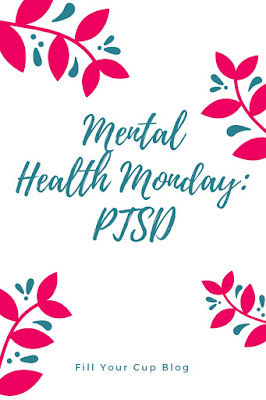Mental Health Monday: PTSD
Hello everyone, and Happy Monday! I'm back today with my very last Mental Health Monday. I have covered all of the major mental illnesses and disorders and I would like to move on to another weekly topic. If you have any suggestions or anything you would like to see me post, email me, leave a comment, or tweet me. The last Mental Health Monday will be focused on Post Traumatic Stress Disorder, or PTSD.
WHAT IS PTSD?
Post Traumatic Stress Disorder is defined as a mental health condition triggered by witnessing or experiencing a traumatic event. PTSD cannot be cured and it can last for one's entire life, but certain treatments can help.
SYMPTOMS OF PTSD
The symptoms of PTSD include:
- agitation
- irritability
- hostility
- flashbacks
- fear
- nightmares
- anxiety
- loss of interest or pleasure in certain activities
- self destructive behavior
- isolation
Emotional detachment and unwanted thoughts are also fairly common symptoms of PTSD.
TREATMENT FOR PTSD
The various treatments for PTSD include types of psychotherapy and medications to manage depression and anxiety. These treatments include:
- Cognitive behavioral therapy
- Exposure and response prevention
- Selective Serotonin Reuptake Inhibitor (SSRI)
A NOTE FROM ME
As always, if you have experienced or witnessed a terrifying or traumatic event and feel like you are experiencing any of these symptoms, please talk to a therapist or a doctor about this event and see if they believe you are experiencing PTSD. PTSD is a little different from other mental illnesses, as most can develop when you are born or soon after you are born, while you cannot necessarily be born with PTSD. It is most common in older people, but can also affect teenagers and children.
I love you guys, and I hope these posts have helped you or someone you know in any way. I'll be back next Monday with a new weekly topic!
Have a lovely day,
Hannah

Comments
Post a Comment